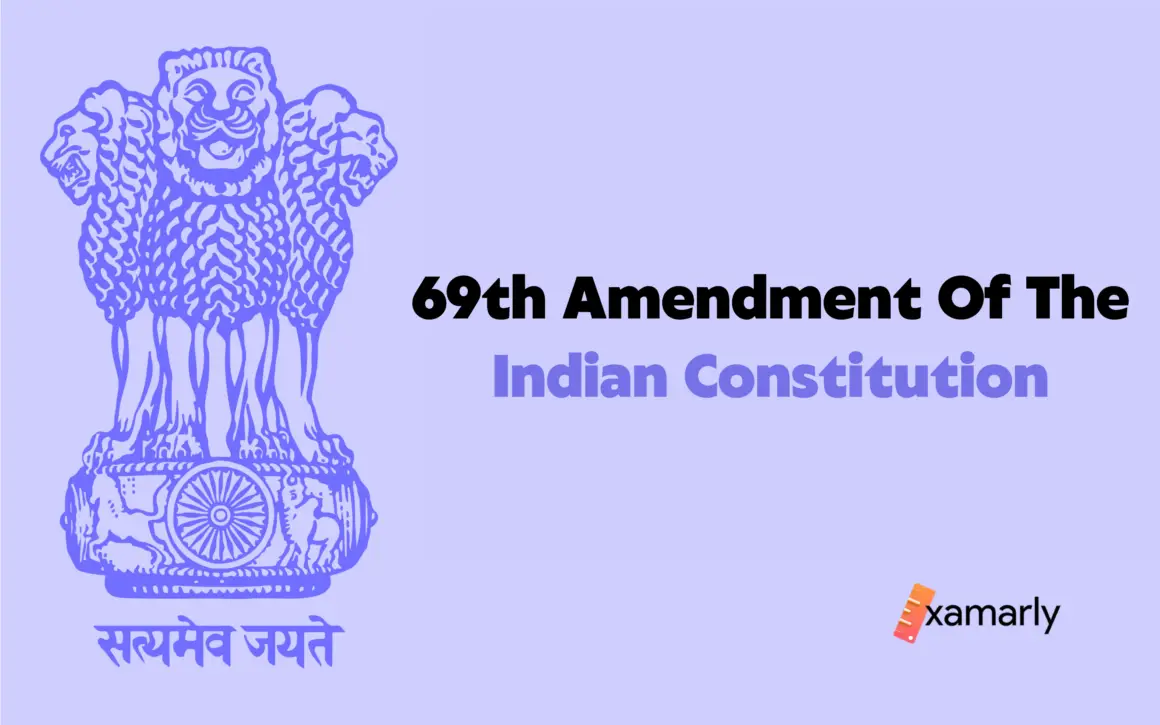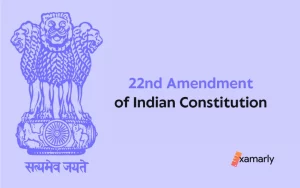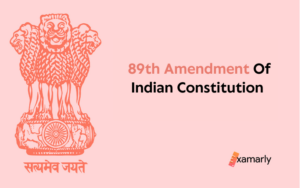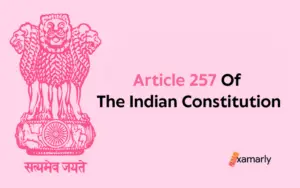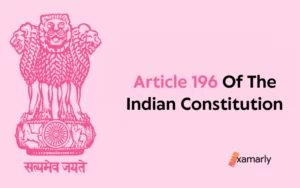The 69th Amendment of the Indian Constitution conferred special status to Delhi, making it a separate state above other Union Territories and below States. It also established a legislature with a 70-member assembly and seven members of the council of ministers. The Constitution has many provisions relating to Delhi, including the role of the Lt. Governor. These provisions will allow the citizens of Delhi to shape the laws, policies, and procedures affecting their city.
Background Of 69th Amendment Of The Indian Constitution
Because of the debate about the issue of restructuring the administrative structure of Delhi. The government established a committee for a detailed inquiry and recommendation for a solution to the problem. The proposal was made that Delhi should remain a Union territory, with a Legislative Assembly and a Council of Ministers that report to that Assembly and have the authority to address matters of concern of public.
Salient Features and Facts
- The 69th amendment of the Indian Constitution gave a special status to Delhi by declaring the Union Territory of Delhi as the National Capital Territory of Delhi,
- An advisory council of ministers and a civil legislative body were constituted by this statute with limited powers.
- It was decided that the legislative body will consist of 70 members and the council of ministers will consist of 07 members.
- This amendment gave partial statehood to Delhi.
- The matters regarding law, land, and police will remain under the central government.
You Might Also Like – 69th Amendment in Constitution of India | 69 Constitutional Amendment
Date Enacted
BE was enacted by Parliament in the Forty-second Year of the Republic of India on 21, December 1991.
Statement Of Objects and Reasons
The government has been debating the issue of restructuring the administrative structure of Delhi, a union territory, for some time. On December 24, 1987, the Government of India established a committee to investigate the numerous problems with Delhi’s administration and make recommendations for solutions, including simplifying the administrative structure.
The Committee studied the matter in great detail and took into account the issues after speaking with a variety of people, associations, political parties, and other experts and taking into account the arrangements in the national Capitals of other countries with a federal territory as well as the discussions in the Constituent Assembly as well as the reports by earlier Committees and Commissions.
Following such comprehensive investigation and analysis, it was advised that Delhi should remain a Union territory, with a Legislative Assembly and a Council of Ministers accountable to that Assembly and given the necessary authority to address issues of general concern to the population. To guarantee stability and permanence, the Committee further suggested that the National Capital be accorded a particular position among the Union territories through provisions that should be included in the Constitution.
The Bill aims to implement the aforementioned proposals.
Read Also – 57th Amendment of the Indian Constitution
Important Provisions In 69th Amendment Of The Indian Constitution
Special rules pertaining to Delhi-
The Constitution’s Article 239A shall be followed by the following articles, namely:
“239AA.” (1) The National Capital Territory of Delhi (hence referred to as the National Capital Territory) is the name given to the territory administered by the Lieutenant Governor, who was chosen in accordance with article 239 of the Constitution (Sixty-ninth Amendment) Act of 1991.
(2) (a) There will be a Legislative Assembly for the National Capital Territory, and members will be elected using territorial constituencies for direct election within the National Capital Territory to fill the seats in that Assembly.
(b) All matters relating to the operation of the Legislative Assembly, including the total number of seats in the Assembly, the number of seats set aside for Scheduled Castes, the division of the National Capital Territory into territorial constituencies (including the basis for such division), and all other matters relating thereto, shall be governed by laws passed by Parliament.
(c) The provisions of articles 324 to 327 and 329 shall apply to the National Capital Territory, its Legislative Assembly, and its members in the same manner as they do to States, their Legislative Assemblies, and their members, respectively; and any reference in articles 326 and 329 to the “appropriate Legislature” shall be deemed to be a reference to Parliament.
(3) (a) Subject to the provisions of this Constitution, the Legislative Assembly shall have the authority to enact laws for the entirety or any portion of the National Capital Territory about any of the matters listed in the State List or the Concurrent List, insofar as any such matter applies to Union territories, except matters about Entries 1, 2, and 18 of the State List and Entries 64, 65, and 66 of that List,
(b) Nothing in subclause (a) shall limit the ability of Parliament to pass laws for a Union territory or any portion thereof under this Constitution.
(c) If a provision of a law passed by the Legislative Assembly conflicts with a special provision of a law passed by Parliament matters with respect, whether passed before or after the law passed by the Legislative Assembly, or of an earlier law that was not a law passed by the Legislative Assembly, then, in either case, the law passed by Parliament, or, as the case may be, such earlier law, shall prevail and the law passed by the Legislative Assembly to be void:
With the proviso that any such legislation passed by the Legislative Assembly that has been reserved for the President’s consideration and received his assent shall take effect in the National Capital Territory:
Furthermore, nothing in this sub-clause shall prevent Parliament from passing legislation relating to the same subject at any time, including legislation that supplements, modifies, varies, or repeals the legislation so made by the Legislative Assembly.
(4) There shall be a Council of Ministers, headed by the Chief Minister, composed of not more than ten percent of the members of the Legislative Assembly, to assist and advise the Lieutenant Governor in the functions in relation to matters with respect to which the Legislative Assembly has the power to make laws unless he is required to act by the law:
In the event of a difference of opinion between the Lieutenant Governor and his Ministers on any issue, the Lieutenant Governor shall refer it to the President for decision and act on the President’s decision. However, while waiting for the President’s decision, the Lieutenant Governor shall have the authority to act or make a decision if the matter is, in his opinion, so urgent that it requires him to act immediately.
(5) The President shall appoint the Chief Minister, and the President shall appoint the other Ministers on the Chief Minister’s recommendation. The Ministers shall hold office for the duration of the President’s pleasure.
(6) The Legislative Assembly will be held jointly responsible by the Council of Ministers.
(7) The provisions in the aforementioned sections may be implemented or supplemented by law, and all issues related to them may be incidental or consequential.
(8) The provisions of article 239B shall, insofar as may be, apply with respect to the National Capital Territory, the Lieutenant Governor, and the Legislative Assembly, as they do with respect to the Union territory of Pondicherry, the administrator, and its Legislature, respectively. Any references to “clause (1) of article 239A” in that article shall be deemed to be references to this article or article 239AB, as the case may be.
The provision of the constitutional mechanism malfunctions. If the President is satisfied, whether after receiving the Lieutenant Governor’s report or otherwise-
(a) that a circumstance has arisen where the National Capital Territory’s administration cannot be conducted by the terms of article 239AA or of any law enacted in response to that article.
(b)that it is required or advantageous to do so for the proper administration of the National Capital Territory, the President may, by order, suspend the application of any provision of Article 239AA or of all or any of the provisions of any law passed by that article for the period and under the conditions specified in such law, and may make incidental and consequential provisions that, in his judgment, are necessary or advantageous for administering the National Capital Territory.
Summing Up
The sixty-ninth amendment gave a special status to Delhi as it declared a union territory of Delhi to the national union territory of Delhi. 7-member council of ministers and a 70-member legislative assembly with limited power for Delhi were also to be established.
FAQ’s
Q. What year did the 69th Amendment of the Indian constitution go into effect, renaming Delhi’s Union Territory the National Capital Territory of Delhi?
In 1991 the 69th Constitutional Amendment Act go into effect.
Q. Who appoints Delhi’s LG?
The President of India appoints the LG in Delhi.
Q. What change led to Delhi becoming an NCT?
The Legislative Assembly and the governance of the National Capital Territory (NCT) of Delhi are organized according to the Government of National Capital Territory of Delhi (GNCTD) Act, 1991. The Act modifies a number of the Legislative Assembly’s and the Lieutenant Governor’s duties.
Q. Who is the current Lt. Governor of India?
Devendra Kumar Joshi, who entered power on November 8, 2017, is the lieutenant governor appointed by Ram Nath Kovind, the president of India.


